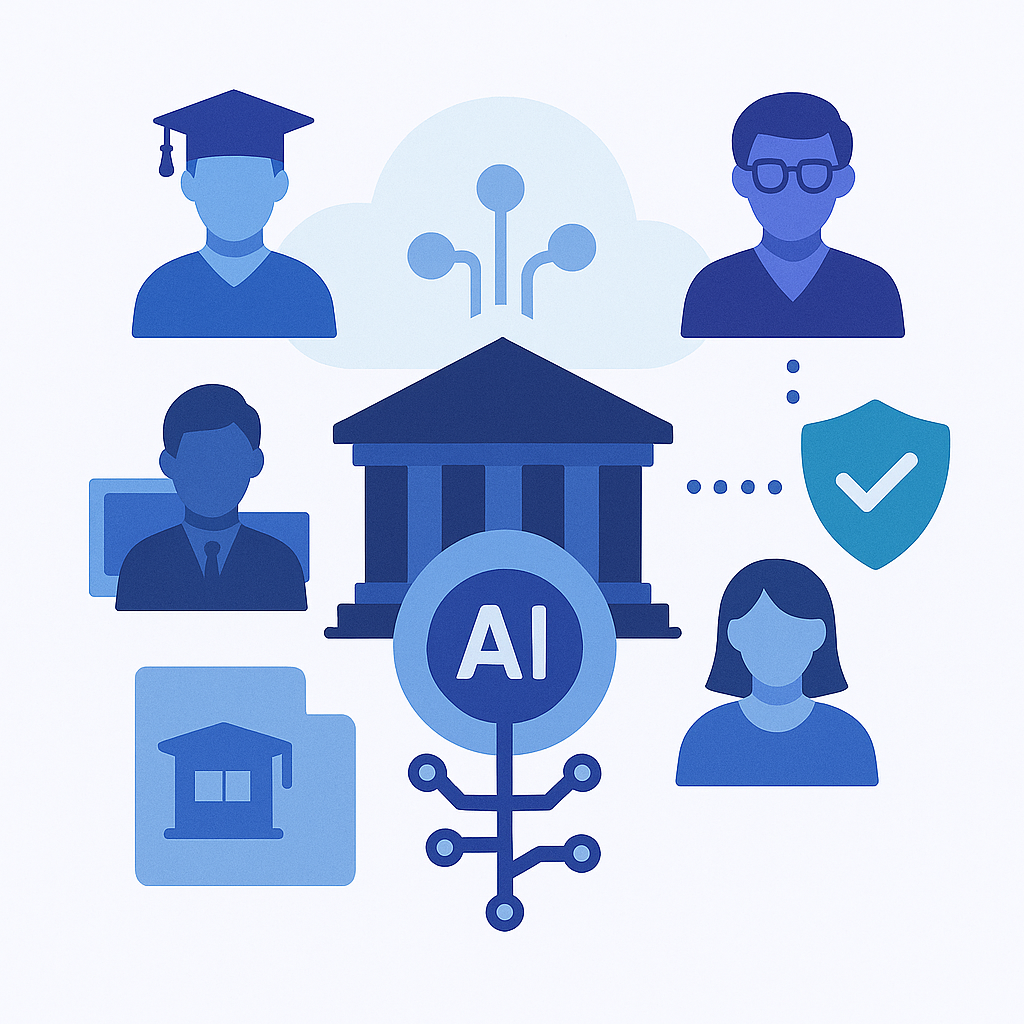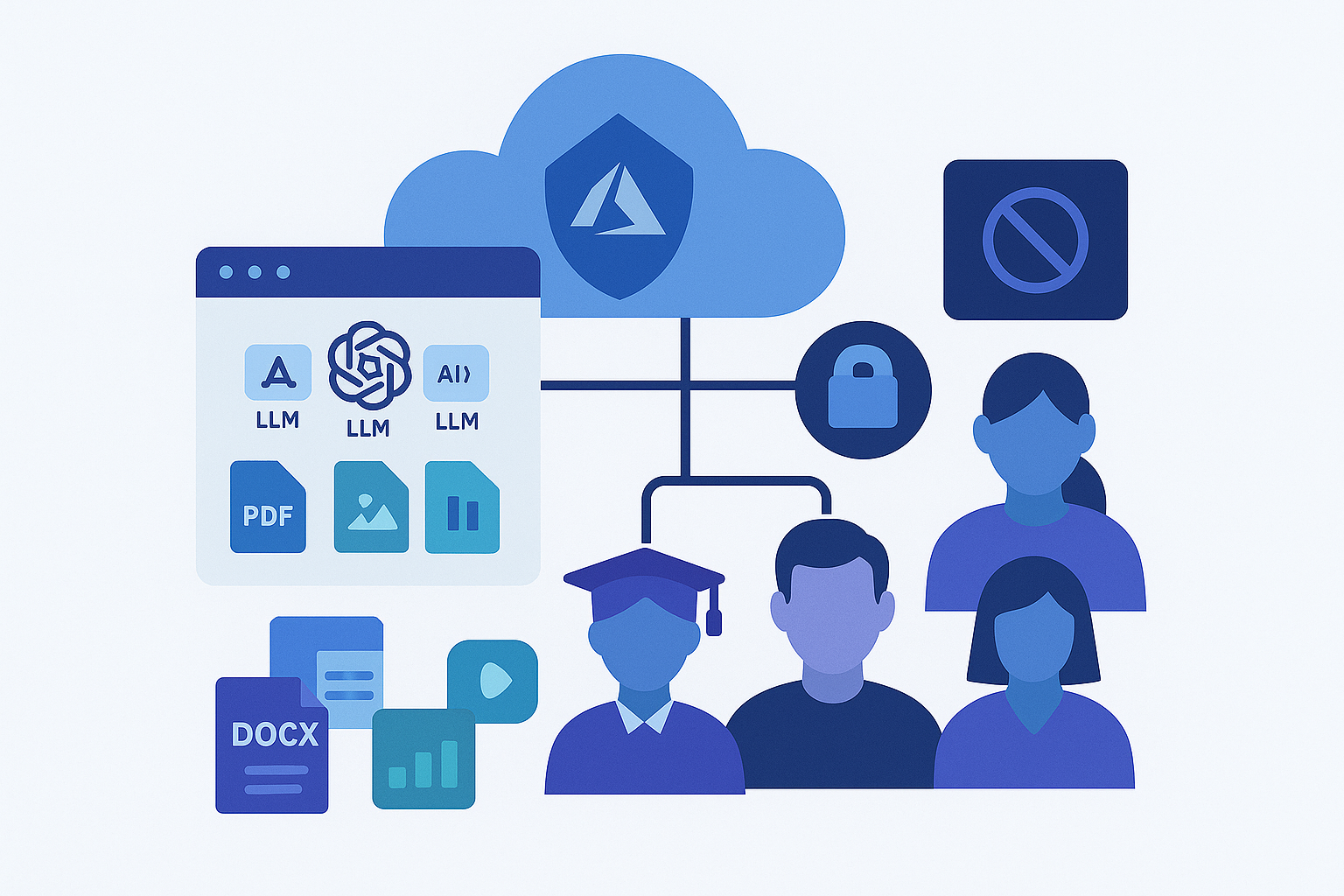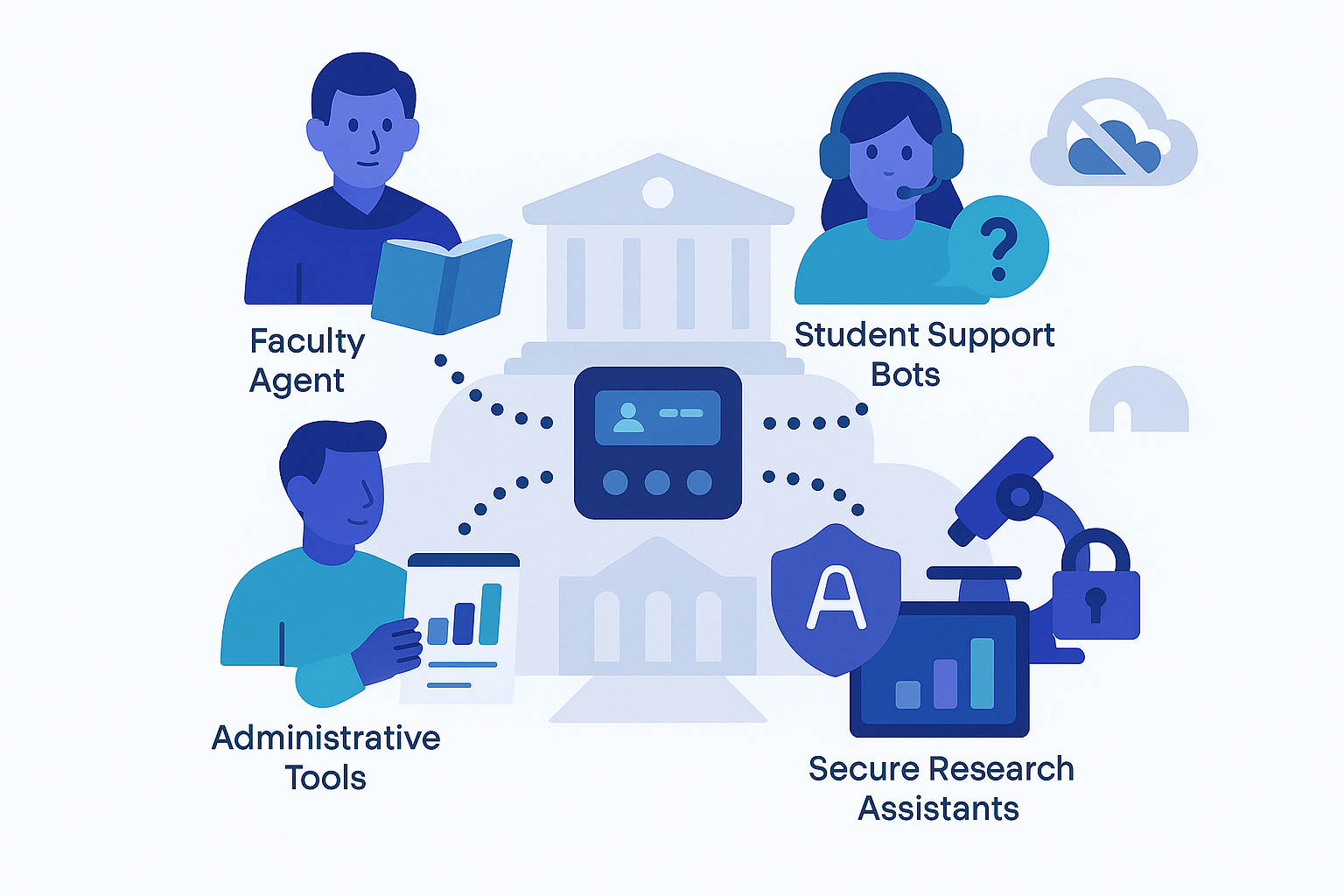Empower Every Mind: Unleash AI Across Campus.
Universities are under pressure to innovate—but when it comes to AI, many face the same blockers as enterprises: long timelines, unclear governance, and a lack of infrastructure that balances usability with institutional control.
One Ivy League university, serving a diverse community of nearly 15,000 students, decided to change that.
In just a few weeks, they launched a campuswide AI platform designed to support faculty, staff, and students alike—securely, equitably, and with room to grow. It wasn’t just a chatbot. It was the beginning of an extensible, multimodal AI foundation, deployed inside their own infrastructure, and tailored to the unique needs of higher education.
At the center of it all? FoundationaLLM.


